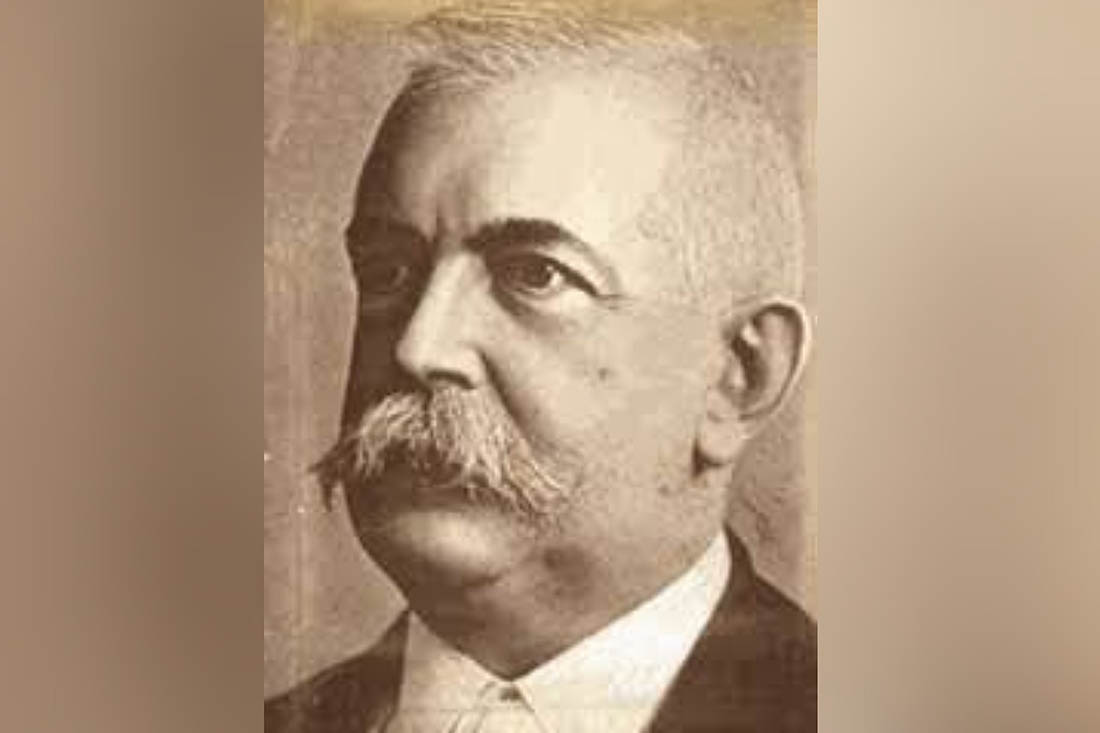Enrique José Varona is one of the most important Cuban intellectuals. His incorporation and brief participation in the Great War, as a Deputy before the Spanish Courts, his links to the Autonomist Party, his role as a contributor to national and foreign periodicals, and as editor of the newspaper Patria, offer interesting aspects of his work during the 19th century.
While, in the Republic, his actions as Secretary of Finance and Public Instruction and Fine Arts, founder of the National Conservative Party, vice president between 1913-1917 and honorary president of the Academy of History and member of the Academy of Arts and Letters, marked a defining stage in his intellectual work.
Between 1880 and 1883 he published in Havana his famous Philosophical Lectures on Logic, Psychology and Morals, necessary to understand his teaching position. The conferences became a cultural event that crossed the borders of Cuba. They were published in various media and countries, and used as materials in Latin American and French universities during the early twentieth century.
The relevance of Varona’s lectures is determined by the fact that as a man of thought and an eminent philosopher he addresses and promotes the development of the most advanced scientific studies in the natural and social sciences. In his introduction, he himself defined his purpose: «… they are directed towards the improvement of man […] to the progress of humanity».
The Varona Plan as an educational reform
Among the most important educational reforms in Cuba is the one known as Varona Plan, instituted by Military Order No. 266 of June 30th, 1900 – under his performance as Secretary of Public Instruction and Art, in force until December 1930, however, it had several transformations during that period.
Two of the most relevant aspects of the Plan is the exclusion of obsolete subjects and the introduction of the subjects Spanish Grammar and Literature, Mathematics, Physics, Chemistry, Cosmology, Biology, Natural History, English, French, Geography, Universal History, Logic, Sociology, Civic Education and Chemistry: Essential background in the country for the creation of Architecture, Civil and Electrical Engineering, Pedagogy, Dental Surgery and Public Law careers.
Another peculiarity of this educational reform was the restructuring of the University of Havana into three Faculties: Letters and Sciences, Medicine, and Pharmacy and Law. Each one included several careers, so that an allocation of materials for teaching was guaranteed, as well as the balance between the number of teachers in relation to the enrollment of students.
Despite its benefits, the Plan had many detractors who joined the reluctance of some teachers unable to perceive the scope of the implicit transformations. The complex environment due to the limitations of materials, texts, means, tools, instruments, classrooms, laboratories and the negligence of governments in the educational context were also negative factors for its full implementation.
Despite the limitations due to the devaluation of social studies – humanists – conditioned by a positivist thought – and the difficulties for its implementation, the transcendence of the Varona Plan is undeniable. The proposed changes in methods, subjects and curricula for secondary and university education represented a way to eliminate the country’s educational backwardness and safeguard Cuban nationality.
Scientific, objective, experimental and practical teaching were principles defended by the Plan, as they prepare people to be useful to society. Due to his innovative position in teaching, Enrique José Varona -who supported the University Reform of 1920- is defined as “Youth Teacher”.
Translatedby: Aileen Álvarez García






